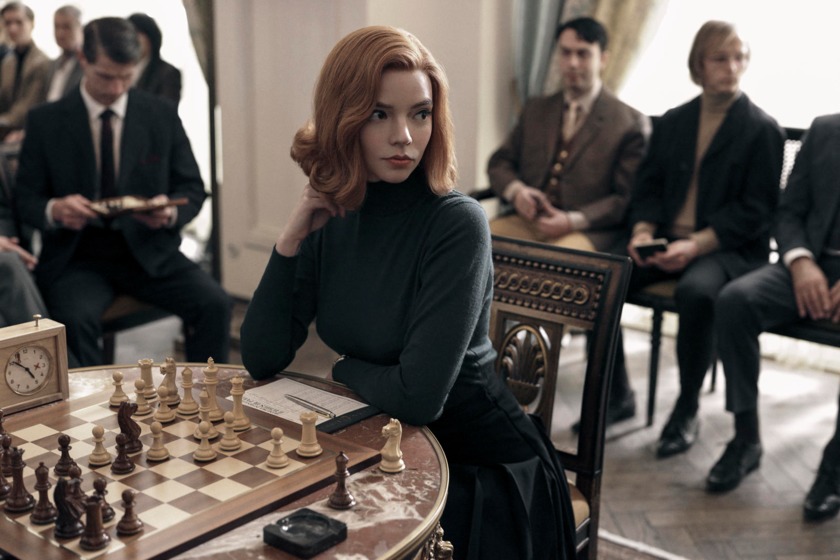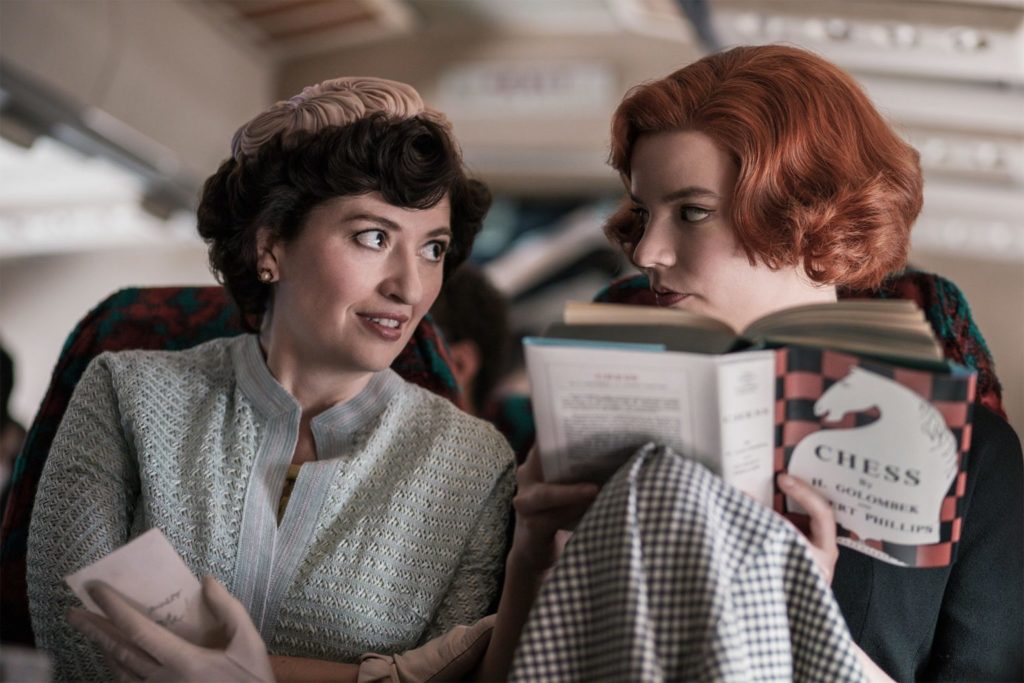The miniseries “Queen’s Gambit” debuted on the Netflix platform on October 23 this year. The series is directed by Scott Frank. He is also the co-author of the screenplay, written with Allan Scott (I will omit the somewhat funny coincidence of the gentlemens names). It is interesting to mention that Scott Frank was the author of the script, for such films as “Logan” or “Wolverine” from 2013. Which proves how much good author matters to any production. The script itself is based on the novel of the same name, written by Walter Tevis. And just in case someone wonders about it (I was wondering) it tells a completely fictional story.
The series can be easily compared to the films such as “Beautiful Mind” or “Rebel by Choice” as it repeats a story based on the embodiment of the human mind. This time, however, we follow the story of Elizabeth Harmon, a genius chess player born in the United States. And it is the chess theme that distinguishes the series from other creations on similar topics.

Unfortunately, I don’t know much about chess. Yes, I sometimes play, but on an average amateur-home level. I only know castle from movements. However, I always had in my head a certain image of a genius chess player – an organized strategist and a man/woman with an outstanding mathematical mind. Probably that’s why – for me – this series was so perfectly able to reflect the world that I could only imagine so far.
We follow the main character of the series from her turbulent childhood to adulthood. The dramaturgy of the series, showing the life of an orphaned child, an introverted teenager, and a lost young woman at the end, is extremely subtle. There are no scenes of violence or horrors that often appear in film productions. Instead, there is a specter of addiction, loneliness, and fear. The series character has highs and lows and they are shown in such way that until the last episode it is not obvious how Elizabeth will end.
A huge plus of the series is also the distance that the writers showed in relation to the topics of sex and homosexuality. Recently, I have the impression that sex scenes are used in movies and series like clogs. When a writer lacks a good plot idea, he adds a sex scene that reflects nothing – and is often viewed with disgust (#Lovecraft Country). Here, sex scenes, or those related to sex, are very well thought out, have fictional justification and do not reject with their lack of embarrassment. In the case of homosexuality, the series breaks slightly a current trend. The trend that every show must have an LGBT thread, whether it makes plot sense or not. Homosexuality is also handled more delicately and with sensitivity and respect. The Queen’s Gambit captures human sexuality with great care and subtlety. And the writers deserve a lot of applause for that.

The photos and scenery make an extraordinary impression. Especially the fantastic visuals of a chess game that Elizabeth plays “in her head”. Some of the scenes are shot in such a way, that they create a certain geometric impression. Maybe I over-interpret, but I have the impression that everything in the series refers to the look of the chessboard. Casting is also at a really high level, because the acting is light, balanced but fully reflects the whole dramatic effect. Anya Taylor-Joy, who plays Beth, turned out to be a bull’s eye and after watching the series, I can’t imagine anyone else for this role. The soundtrack is absolutely sweeping. All songs fit perfectly in the United States of the 1960s. Nevertheless, the most impressive are the pieces written by Carlos Rafael Rivera – a composer who will surely make it to all my music lists. With the song The Final Game (El juego final) at the fore.

And finally… I never thought watching a game of chess could be so exciting. How easily the show creates suspense for viewers to a game like chess is truly impressive. I certainly recommend it and kudos to Netflix for creating and shating this jewel during pandemic.




